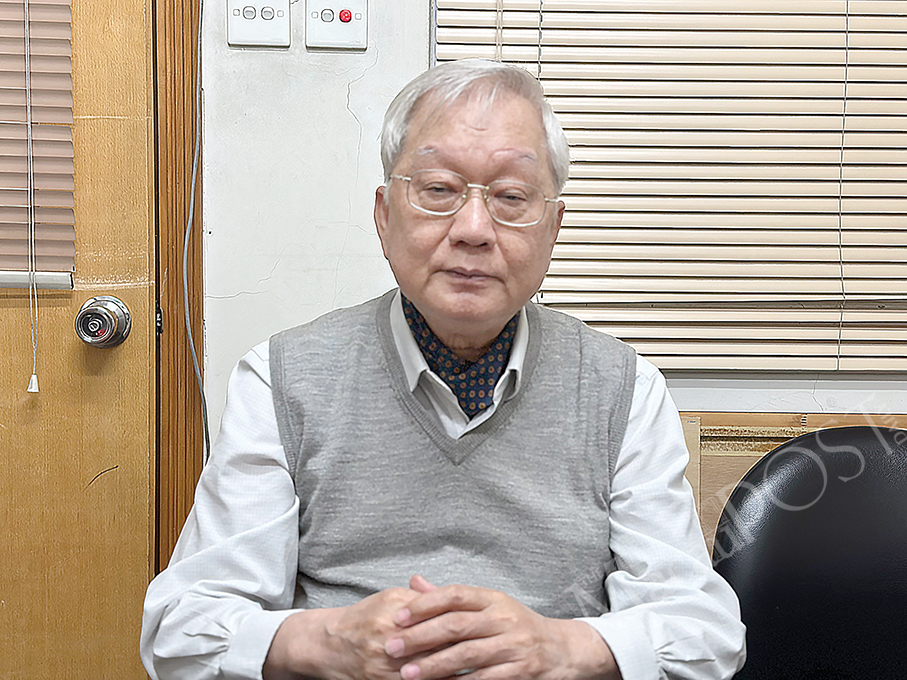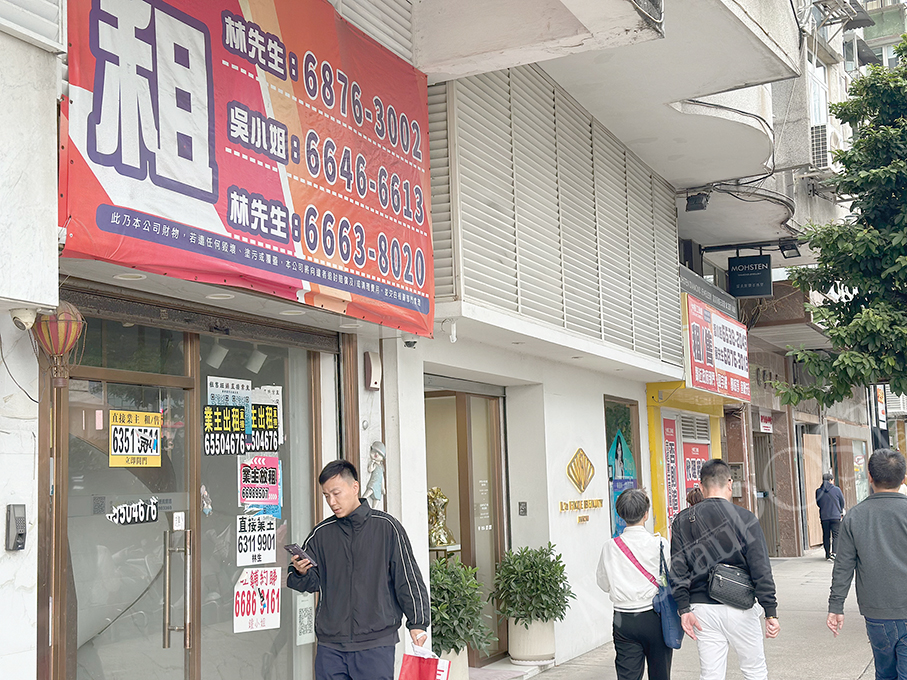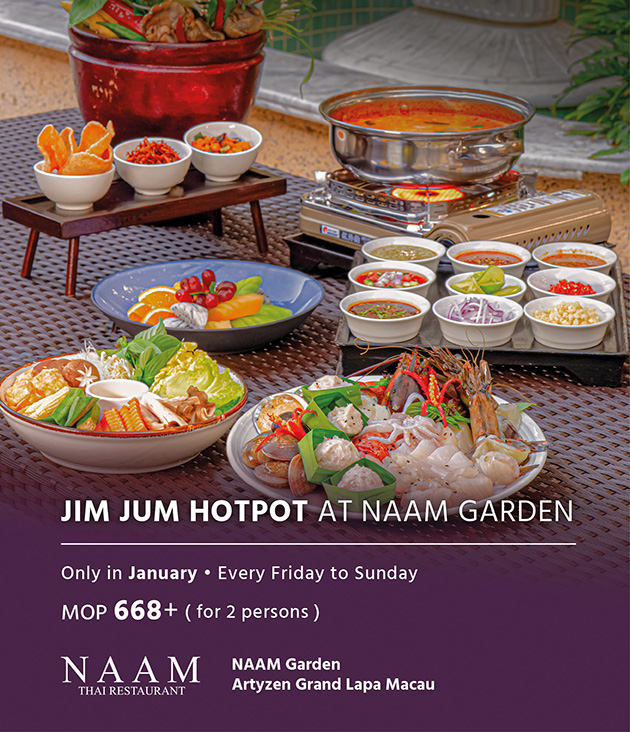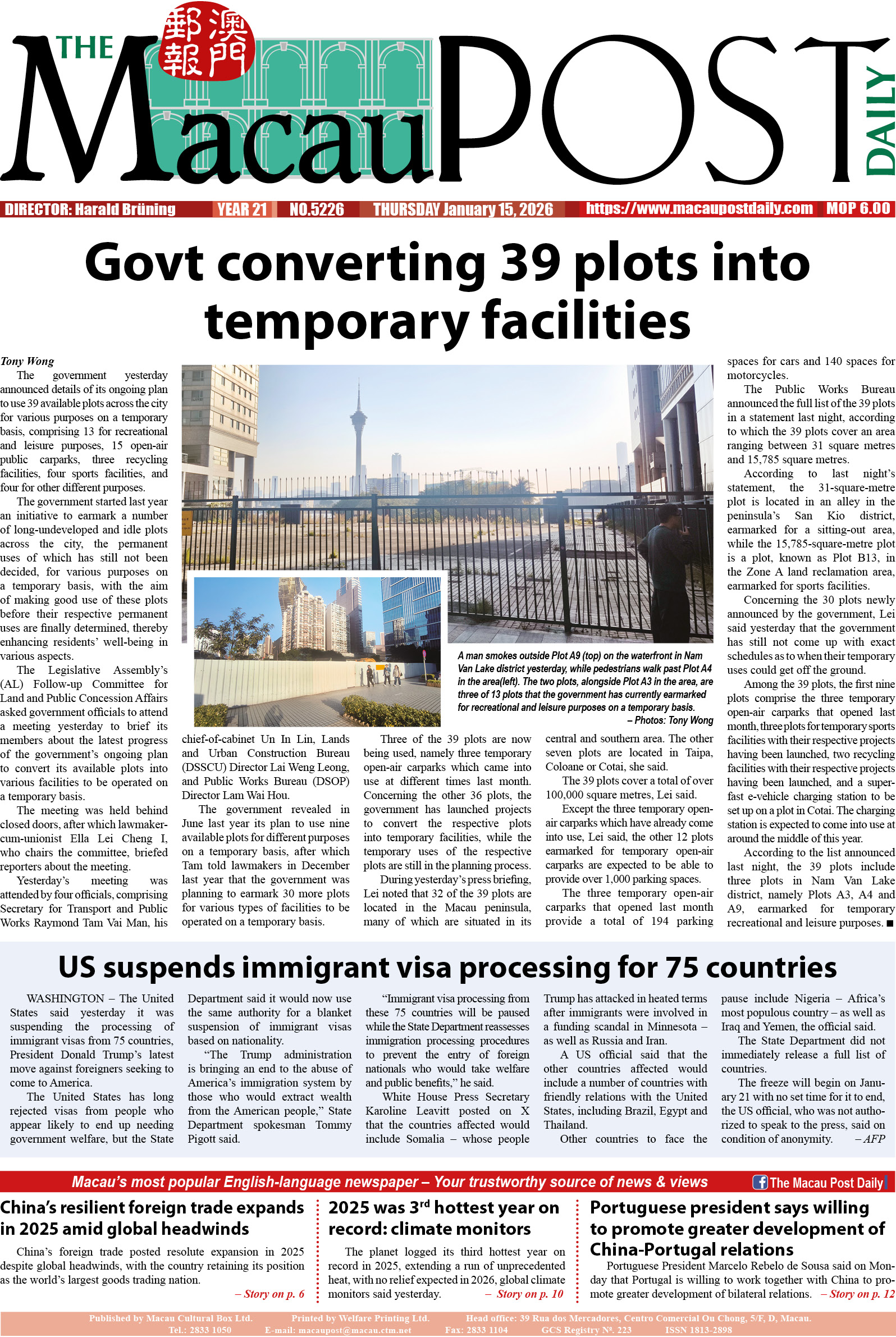Interview by Yuki Lei
In the face of the uncertainty of the global economic environment and a consumption downtrend in the aftermath of the three-year COVID-19 pandemic, the predicament of Macau’s small- and medium-sized enterprises (SMEs) is even worse than it was during the pandemic – and as the chairman of the Macau Small and Medium Enterprises Development Alliance, Sunny Ip Sio Man, told the Post “the physical stores in the local neighbourhoods, be it in the areas of clothing, food, housing and transportation that are connected to the basic necessities of daily life, are going through a depression, which I think can hardly be reversed in the short term”.
Speaking to the Post during a recent interview at his office in the Avenida do Almirante Lacerda (竄硅윙瓊떽댕馬) neighbourhood, Ip analysed the difficulties faced by local SMEs and their future development in the light of local consumers’ “northbound trend”, changes in consumption patterns among tourists and residents and the implementation of various policies by the central authorities.
According to the latest Statistics and Census Bureau (DSEC) data, catering and retail business operators’ turnover dropped in September, with the former recording a year-on-year decrease of 5.5 percent and the latter a year-on-year fall of 20.7 percent.
‘Northbound trend’
Ip pointed out that during three years of the COVID-19 pandemic (2020-2022), many locals and even non-resident workers (NRWs) got “stuck” in Macau, so “once immigration clearance returned to normal operations, they were eager to go on a trip outside”, while the so-called “Northbound Travel for Macau and Hong Kong Vehicles” and even the downward adjustment to the yuan’s exchange rate were only additional incentives that simulated local consumers’ expenditure in the mainland.
“The phenomenon of over-consumption by locals [in the mainland] has been intensified under the policy of ‘Macau cars moving northward’, that is, when people used to be able to cross the border only on foot, a filled-up shopping bag brought from the mainland might be used up in three or four days, but now, under the new policy, especially for those families who drive their cars to the mainland for shopping, the bags might contain enough goods for half a month or even more without the need to spend any money in Macau, especially for expenditure on foodstuffs and other consumable goods and daily necessities, or even a season’s worth of clothes, shoes and socks,” Ip said. Consumer demand has gone to the mainland, and the demand for goods and services provided by local shops has dropped, among which retail, catering and some service industries such as vehicle maintenance and carwash shops, and even beauty parlours have been particularly hard hit, he added.
Changes in consumption patterns among tourists & residents
Ip underlined the emergence of a consumption downtrend in Macau: “As a matter of fact, both tourists and locals are having a bleak economic outlook, so they have cut spending waste or are very cautious of not spending money casually, even though many shops are offering discounts in the hope of motivating shoppers to make purchases,” leading to the local SMEs’ turnover dropping drastically.
On the one hand, the consumption pattern of mainland travellers visiting Macau has changed, from a shopping-orientated mode to an in-depth tour mode with a focus on photo-taking, Ip said: “Although there are more tourists, the market economy is not as active as it used to be”.
On the other hand, in terms of online sales, during the pandemic, “local residents became accustomed to three years of less out-of-home spending, and more often staying at home to do online shopping”, coupled with the fact that the Chinese mainland’s e-commerce has been more aggressive in expanding its market to Macau after the pandemic so that the local retail sector is facing new challenges, further exacerbating the difficult business environment, Ip pointed out.
‘Business digitalisation’
When asked whether converting one’s business into an online shop is the only way out for brick-and-mortar shops, Ip categorised local SMEs into two main segments, one being the “old” shops that have been in business for over 20 years, while the other consists of the new SMEs established in the last decade or so, pointing out the difficulties faced by shop owners in digitalising their business operations: “Firstly, as some of the owners of old shops are already middle-aged or even elderly, it is difficult for them to make any changes; furthermore, although the government has provided financial assistance to help SMEs in their transformation, there are still certain risks for the SME operators as they still have to maintain their previous business operations even after the transformation”.
He admitted that he was also worried about the post-pandemic business environment as it is now even worse than during the pandemic, with both old shops and even some of those set up in recent years chose to close down after the expiry of their leases, and in some cases, “the new generation of the old shops is unwilling to take over the shops, as they have to take up an extra job due to the decline in business and the pressure of running a business”.
Measures to stimulate overall consumption atmosphere
Concerning the government’s recent announcement to extend the repayment period of the SME Aid Scheme for two years in order to support the sustainable operation of SMEs, Ip said that “the feasibility of this is not high”. He quoted the appendix to the regulation as noting that “it depends on the bank’s assessment of the SMEs and their ability to repay”, pointing out that no matter whether it is the bank or the government, applicants applying for a loan extension or restructuring of their debts are required to show the past three years’ performance and recent years’ bank account records, but “how could their business have been good in the past three years when there was the pandemic”.
Even though the changes in people’s consumption patterns, habits and the market “have disrupted the hopes of many SME operators that they could start afresh after the pandemic”, Ip said, he still hoped that the government would extend the ongoing citywide “Consumption Carnival” to continue to stimulate Macau’s overall consumption atmosphere, even though, he bewailed, “it does only benefit a small number of shops in the local community, especially during weekends”.
Meanwhile, Ip also said he expected the upcoming “one-trip-per-week permit” for Zhuhai permanent residents entering Macau to trigger a “small sales peak” for the local SME market even though they might not spend a lot during their stay here, but, anyhow, “those who have friends or relatives here would naturally go to local neighbourhoods during their visit”.

Macau Small and Medium Enterprises Development Alliance Chairman Sunny Ip Sio Man poses after last Monday’s interview with the Post at his office in the Avenida do Almirante Lacerda (罅些喇提督大馬) neighbourhood. – Photos: Yuki Lei

This photo taken on Friday shows two vacant shops in Nam Van district available for rent.







